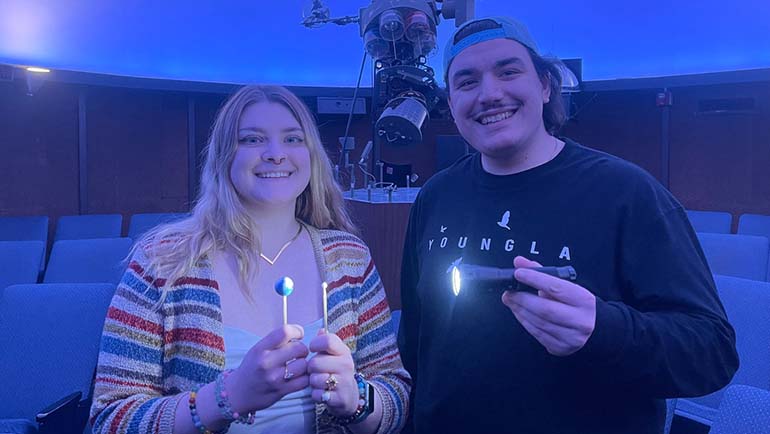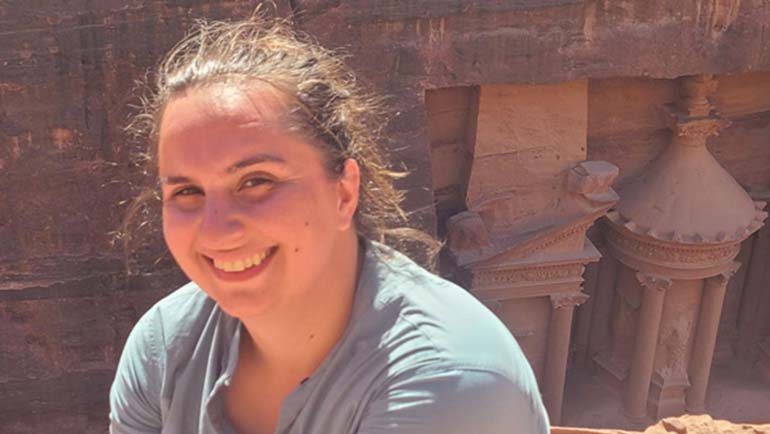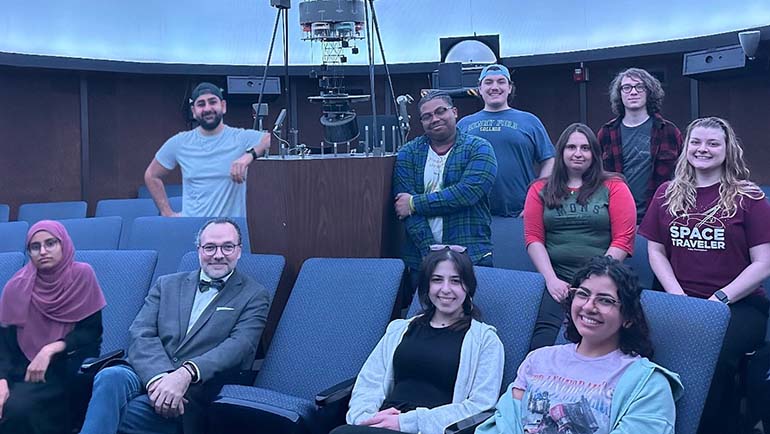
DETROIT – In 2023, Kristen Dage brought the most prestigious postdoctoral fellowship in all of astronomy — the NASA Hubble Fellowship — to Wayne State University. She now hopes to bring something else to Wayne State — more community college transfer students with an interest in science.
Dage began her postsecondary education as a student at Oakland Community College. After transferring to earn her four-year degree, she continued to climb the higher education ladder and eventually earned her Ph.D.
It was a long, impressive journey, but something about it always bothered Dage.

“Astronomy is really competitive, so the key to getting into a good grad school is doing research during undergrad,” said Dage. “When you are a community college transfer student and you only spend two years instead of four years at your undergrad institution, you basically have 50% or 75% fewer opportunities to do research. That's something that I think is an issue toward retention of minorities in physics and astronomy, in particular.”
Dage decided to do something about it. She reached out to her friend, Jesse Mason, a physics professor and director of the Hammond Planetarium at Henry Ford College, and together they developed a program called the Dead Stars Society. The program engages Henry Ford College students in Dage’s astronomy research with the long-term goal of creating a link between Henry Ford College and nearby four-year universities, like Wayne State.
The program started in January 2023 with one student, and rapidly grew to eight.
Dage and Mason received initial funding to start the Dead Stars Society from the Legacy Survey of Space and Time Discovery Alliance (LSST- DA). Dage has now supplemented that funding with a Michigan Space Grant Consortium Hands-on NASA Oriented Experiences for Student Groups (HONES) grant. HONES supports active participation by student groups in hands-on, authentic science and engineering problem-solving research related to NASA’s mission.
“Given her path, Kristen has the perspective that students in community college don’t know about opportunities to get involved in research or the sorts of support they can get at a four-year college,” said Ed Cackett, distinguished service professor and chair of Wayne State’s Department of Physics and Astronomy. “This program opens their eyes to what the possibilities are.”
The LSST-DA grant paid for better laptops and software workshops for the Henry Ford students to allow them to do more intensive data analysis, and Dage says she has been impressed with the results.
“It was hard to judge how much these students were going to be able to accomplish, but I never wanted it to be sort of this fake thing where they don't do anything and we pat them on the back,” said Dage. “And that's the thing I'm so happy about is they’re doing the same data analysis in science I was doing when I started graduate school. I'm just blown away by how accomplished they are. They've literally analyzed 150 X-ray data sets, which is hard to quantify, but that would've taken me months to years to do. And this group of students did it very efficiently.”

In addition to students’ research contributions, the biggest deliverable of the HONES grant will be a student-written and student-tested guide for obtaining and analyzing data from the upcoming Vera C. Rubin Observatory Legacy Survey of Space and Time (LSST). LSST is a cutting-edge 10-year survey of the sky that is expected to begin next year using a brand new 8.4-m diameter telescope in Chile.
“The idea is that our guide should make doing research with the LSST more accessible to community colleges throughout the country,” said Mason. “We are very excited to continue expanding our research collaboration with Wayne State University. The opportunity to do research under the direction of talented scientists like Kristen is profoundly valuable to young science students at Henry Ford College – but the opportunity for these students to then transfer to Wayne State and continue their research makes the Dead Stars Society a unique springboard for launching careers in astronomy. I know the project has inspired a few of these research students to redirect their academic efforts into astronomy-related careers.”
Dr. Kimberly Andrews Espy, President of Wayne State University, added, “This program is an excellent example of how Wayne State provides students access to unparalleled hands-on learning experiences that opens career opportunities that fundamentally alters our students’ life trajectories. Kudos to Dr. Dage and our partners at Henry Ford College -- we hope to see the Dead Stars Society students on our campus soon.”
Dead Stars Society students showcased their work last month at the Compact Objects in Michigan & Ontario conference at Henry Ford.
